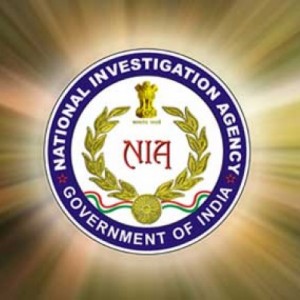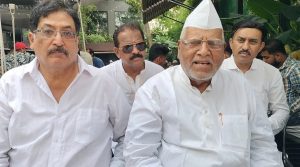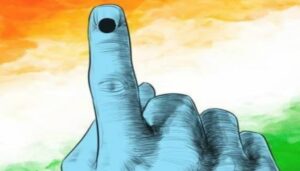Justice Ranjan Gogoi appointed as next Chief Justice of India
On 12 January 2018, Justices Ranjan Gogoi along with Justices J Chelameswar, M B Lokur, and Kurian Joseph of the Supreme Court of India, for the first time in the history of the Supreme Court, held a press conference, alleging problems plaguing the Supreme Court, failure in the justice delivery system and allocation of cases. During the press meet, the four judges told journalists that the press conference was prompted by the issue of allocating to Justice Arun Mishra, the case of the death of special CBI Judge B.H.Loya. Loya, was a special CBI judge who had died in December, 2014. Justice Loya was hearing the Sohrabuddin Sheikh case of 2004, in which police officers and BJP chief Amit Shah are named. Later Justice Arun Mishra recused himself from the case. Justice Chelameswar retired on June 30, 2018 leaving Justice Ranjan Gogoi as the second senior most judge of the Supreme Court of India followed by Justices M B Lokur and Kurian Joseph.
Significant Judgments & Orders
Dismissal of appeal by Reliance Communication
A bench led by Justice Ranjan Gogoi, dismissed the appeal of Reliance Communication, challenging the Gujarat government’s demand notices seeking to levy Rs 13-crore property tax on cell towers and telecom equipment installed on rooftops and building terraces in the state.
On Coconut Oil Packaging
In the case on whether coconut oil packaged in “small containers” be classified as edible oil or hair oil for the purpose of taxation, the Supreme Court Bench of Justice Ranjan Gogoi and R. Banumathi were unable to arrive at a consensus to put this issue to rest. According to Justice Gogoi, Coconut oil would fall under the category of edible oil regardless of the size of its packaging while according to Justice Banumathi coconut oil, when it is packaged in small containers, would be classified as hair oil, regardless of whether it has been labelled as edible oil by the manufacturers.
On Arbitration
A bench of Justice Ranjan Gogoi and Justice R. Banumathi,has observed that in the absence of arbitration agreement, the court can refer parties to arbitration only with written consent of parties either by way of a joint memo or joint application and not on oral consent given by their counsels.
On Re-assessment of Income of Amitabh Bacchan for the year 2002-03
On May, 2016 , the bench comprising Justice Ranjan Gogoi and Justice PC Pant quashed a 2012 Bombay High Court order that dismissed CIT’s power to re-assess income of Bollywood actor Amitabh Bacchan that he allegedly had from the popular TV quiz show, Kaun Banega Crorepati – II.
In October 2002, Bachchan filed returns showing income of Rs 14.99 crore for 2002-03. On March 31, 2003, he filed revised returns, declaring total income for 2002-03 in which he claimed expenses at 30% ad hoc amounting to Rs 6.31 crore, showing his income at Rs 8.11 crore. In March 2005, Income Tax Department determined the actor’s income at Rs 56.41 crore for the assessment year 2002-03.
Dismissal of advocate Kamini Jaiswal’s petition seeking a Special Investigation Team (SIT) probe
The Supreme Court bench led by Justice Ranjan Gogoi on JANUARY 24, 2018 dismissed Advocate Kamini Jaiswal’s petition seeking a Special Investigation Team (SIT) probe into the incidents of attacks on then JNU student union leader Kanhaiya Kumar 15 and 17 February 2016, at Patiala House Court while he was escorted to court room in a sedition case.
On Govindaswamy vs State Of Kerala
23-year-old Soumya, an employee of a Kochi shopping mall, was assaulted by one Govindaswamy in an empty ladies’ coach of Ernakulam-Shoranur passenger train on February 1, 2011. She was allegedly pushed off from the slow-moving train, carried to a wooded area and subsequently raped. She succumbed to injuries at the Government Medical College Hospital, Thrissur, on February 6, 2011. Govindaswamy was awarded death sentence under section 302 IPC for committing murder by a trial court and the order was upheld by Kerala high court on December 17, 2013.
On 15 September 2016, the Apex Court Bench comprising Justice Ranjan Gogoi, Justice Prafulla C. Pant and Justice Uday Umesh Lalit set aside the death penalty awarded for the Offence of Murder (S.302) and sentenced Govindaswamy to a maximum of Life imprisonment for Rape (s.376 IPC) and other offences of causing bodily injuries.
→ …………….However, to hold that the accused is liable under Section 302 IPC what is required is an intention to cause death or knowledge that the act of the accused is likely to cause death. The intention of the accused in keeping the deceased in a supine position, according to P.W. 64, was for the purposes of the sexual assault. The requisite knowledge that in the circumstances such an act may cause death, also, cannot be attributed to the accused, inasmuch as, the evidence of P.W. 64 itself is to the effect that such knowledge and information is, in fact, parted with in the course of training of medical and para-medical staff. The fact that the deceased survived for a couple of days after the incident and eventually died in Hospital would also clearly militate against any intention of the accused to cause death by the act of keeping the deceased in a supine position. Therefore, in the totality of the facts discussed above, the accused cannot be held liable for injury no.2. Similarly, in keeping the deceased in a supine position, intention to cause death or knowledge that such act may cause death, cannot be attributed to the accused. We are, accordingly, of the view that the offence under Section 302 IPC cannot be held to be made out against the accused so as to make him liable therefor. Rather, we are of the view that the acts of assault, etc. attributable to the accused would more appropriately attract the offence under Section 325 IPC. We accordingly find the accused appellant guilty of the said offence and sentence him to undergo rigorous imprisonment for seven years for commission of the same………..
………………While the conviction under Section 376 IPC, Section 394 read with Section 397 IPC and Section 447 IPC and the sentences imposed for commission of the said offences are maintained, the conviction under Section 302 IPC is set aside…
Following the judgement of setting aside the death sentence of the accused in the said Govindaswamy vs State Of Kerala case, Justice Rajan Gogoi and his bench were severely criticized by members of the public, political leaders including Chief Minister of Kerala, Pinarayi Vijayan, Law Minister of Kerala, A.K. Balan, Senior CPI(M) leader V. S. Achuthanandan, media members and legal luminaries including Supreme Court lawyer Kaleeswaram Raj and Supreme Court Justice (retd) Markandey Katju.
Justice (retd) Katju had called the Supreme Court’s September 15 verdict a “grave error” not expected of “judges who had been in the legal world for decades”. The blog dated September 17 had castigated the Bench for believing “hearsay evidence” that Soumya jumped off the train instead of being pushed out by Govindaswamy. In the blog, Justice (retd) Katju had written,
→Even a student of law in a law college knows this elementary principle that hearsay evidence is inadmissible.
In response, the SC bench led by Justice Rajan Gogoi decided to convert that blog by Justice Markandey Katju into a review petition and asked him to personally appear in court to debate.[19]On November 11, 2016, he appeared in the court and submitted his arguments. The Court then dictated the order rejecting the review petition and issued contempt of court notice to him stating that “Prima facie, the statements made seem to be an attack on the Judges and not on the judgment”. On January 6, 2017, The Supreme Court has accepted Justice Markandey Katju’s apology and closed the contempt proceedings against him.








